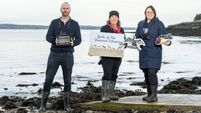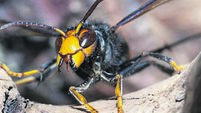Local radio stations ask young listeners to help them record sounds of nature in Ireland

The initiative to gather data on climate issues will contribute to the 'Ours to Protect' climate change series of programmes which has just begun. Picture: iStock
Radio stations across Ireland are participating with young people to record the sounds of nature across Ireland, mapping the sonic landscape of the natural world as part of programming on climate change and the environment.
The Independent Broadcasters of Ireland has partnered with the Institute for Climate Sound & Society at Harvard University to enable 16 local radio stations to come together to use sophisticated sound recording technologies to gather data on climate issues as part of the 'Ours to Protect' climate change series of programmes which has just commenced.













